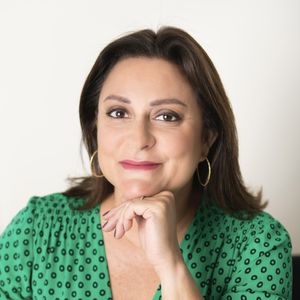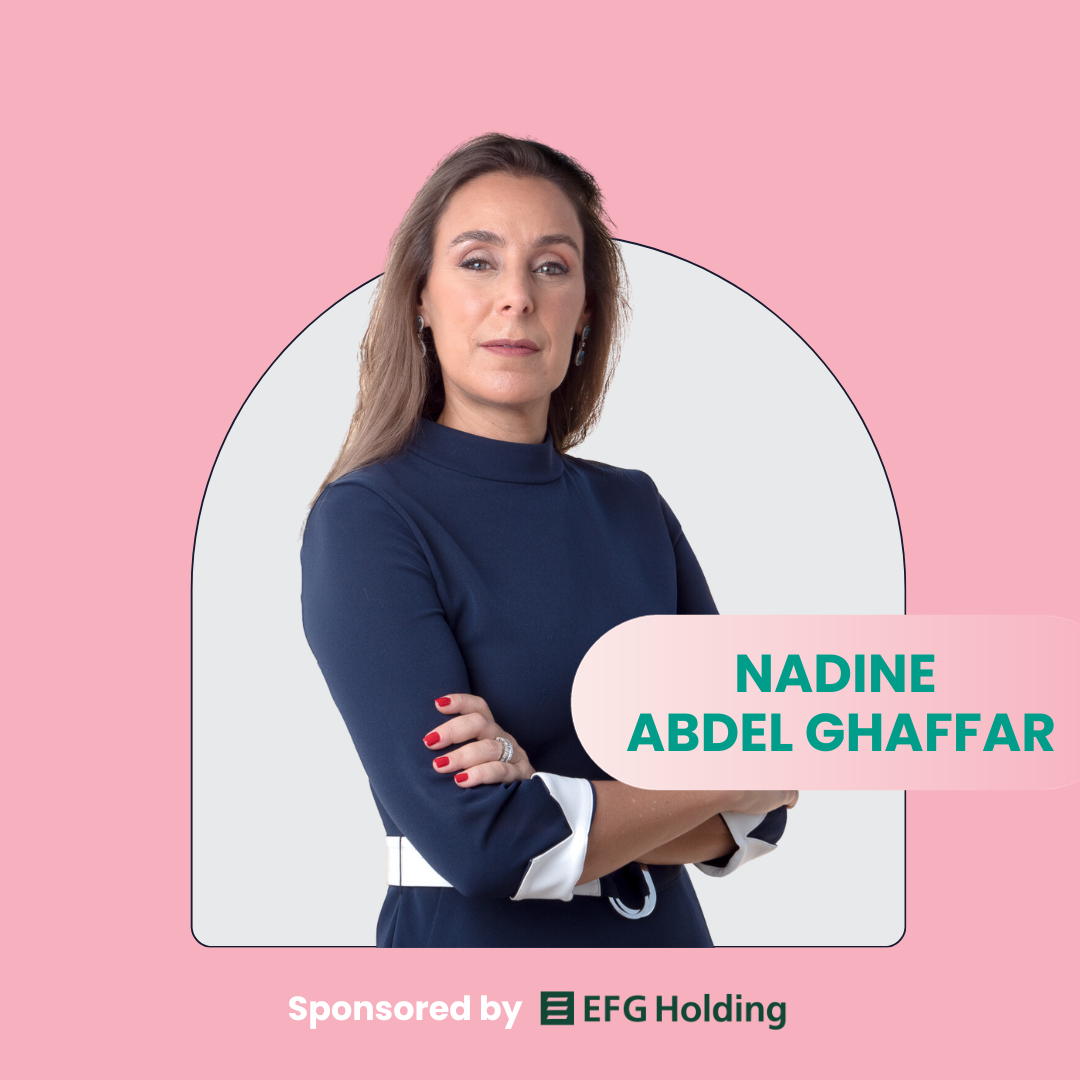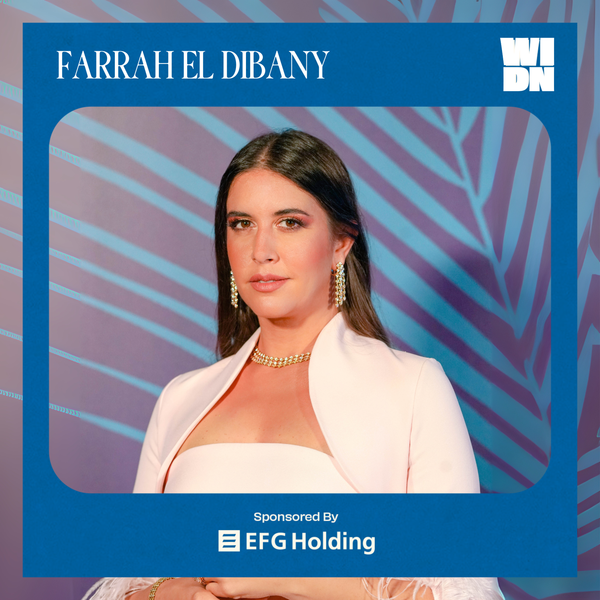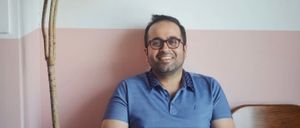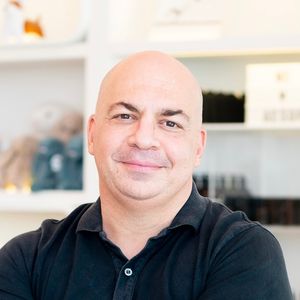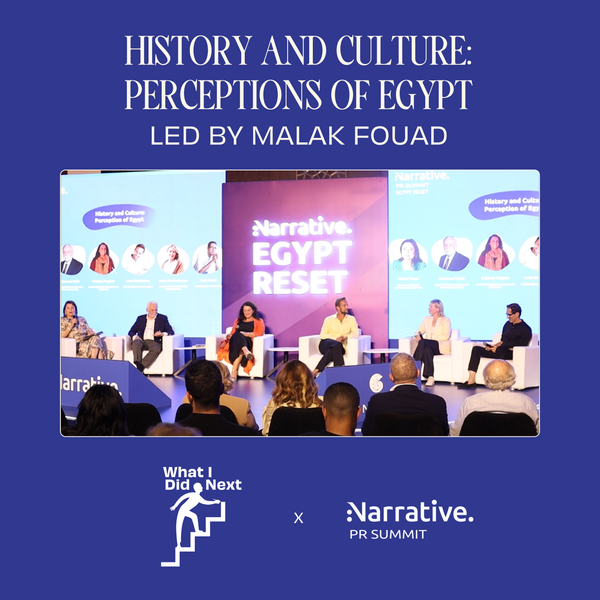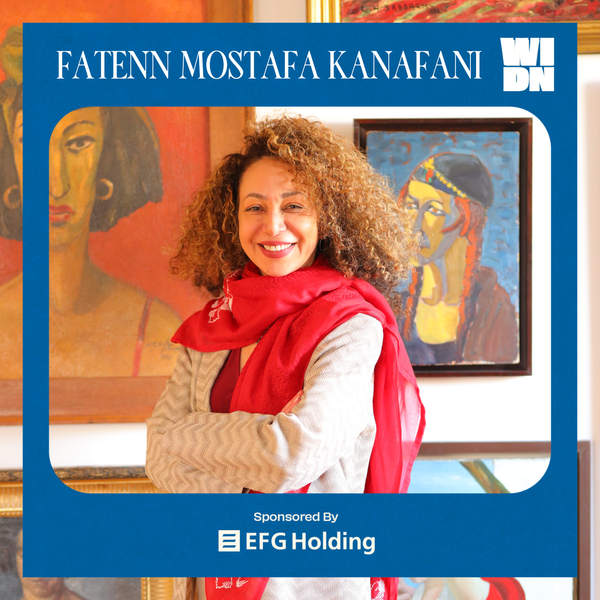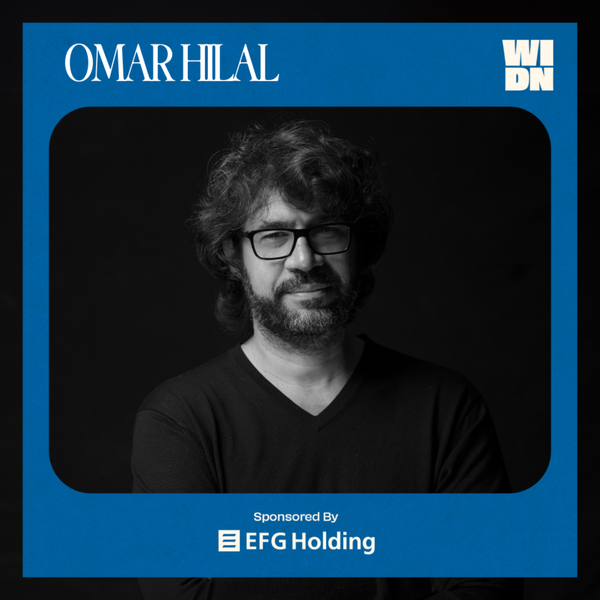I’m joined this week by curator Nadine Abdel Ghaffar, founder of Art d’Egypte. From humble beginnings in 2017, their annual event has become a celebration of art, installations and global partnerships. Nadine is also an art curator with a passion for one of Egypt’s most celebrated artists, Mohamed Nagy, and manages their art estate along with his family.
Nadine tells me how her childhood experiences led to her building a tremendously successful art platform and why her life’s mission is the development of all things culture.
EFG Hermes One, your one-stop gateway to investment
Links
Transcript
Malak Fouad
[00:04 - 00:25] Hi, I'm Malak Fouad, and thank you for joining me on What I Did Next from A&T Media. I welcome a new guest each episode, and we take a deep dive into their personal journeys, exploring the twists and turns their lives have taken, to understand what these pivotal moments mean. On today's episode, curator Nadina Abdel Ghaffar tells me how her childhood experiences led
[00:25 - 00:31] to her building a tremendously successful art platform, and why her life's mission is a development of all things culture.
Nadine Abdel Ghaffar
[00:31 - 00:52] My mom has taught me, life does not just belong to you. You cannot do something just for you. You have to always do something for other people. Like give back in some way. You have to give back. I think what I've discovered and what I try to do is also culturally change people, because
[00:52 - 01:00] culture can change people, can help also develop people, can help have people less aggressive.
Malak
[01:00 - 01:01] It opens the horizons.
Nadine
[01:01 - 01:05] Teach the language of peace without speaking it.
Malak
[01:05 - 01:07] In a subtle way. In a very subtle way. Exactly.
Malak Fouad
[01:11 - 01:32] Nadina Abdel Ghaffar is the founder of Art d'Egypte, a multidisciplinary firm that she founded to support art and cultural initiatives. From organic beginnings in 2017, there is now an annual event that has become a celebration of art, installations and global partnerships. In addition to her work with Art d'Egypte, Nadine is also an art curator with a passion
[01:32 - 01:44] for one of Egypt's most celebrated artists, Mohamed Nagy, and manages their art estate along with members of his family. All of this traces back to Nadine's childhood and particularly her mother's influence.
Nadine
[01:45 - 02:09] Well, I grew up in Alexandria. Alexandria was a very cosmopolitan city. My mom is an art collector, so I grew up with art. We had artists come over. My mom, not being fully Egyptian, really helped. I think this French influence made a difference, because I must say French in general are very
[02:09 - 02:22] cultured. They believe in the value of culture. A lot of countries are more into other things, but French really take the time to inhale culture.
Malak
[02:22 - 02:24] That's right. It's a very core part of their existence.
Nadine
[02:25 - 02:45] Very true, even in education. My mom would always invite their friends from France, and she would always be like the guide, taking them to different cultural places. I must say that the whole community we were raised with are all half Egyptian, half something. They were all very cultured.
[02:45 - 02:56] I remember going on weekends to Domiot, Rachid, to do those culture trips with our parents and their friends, something that we don't really do now with our kids. That's right, which is a big shame, I think.
Malak
[02:56 - 02:57] Very big shame.
Nadine
[02:57 - 03:15] There were some icons in Alexandria, like Jean-Yves Empereur, who's lived for 20 years in Alexandria, founded the Centre de Recherche Français d'Alexandrie. He's the one that discovered the sunken treasures of Alexandria. He was a very important man. But of course, as a child, I didn't even know who he was.
Malak
[03:15 - 03:17] Is it still operational, his project?
Nadine
[03:17 - 03:40] I think so, yeah. Yeah, yeah. The Centre de Recherche is still there. I think now his wife is handling it. So it's very interesting how even one of my friends came from Paris just to take a stage with him. We would go on archaeological sites with the archaeologists while they were digging, while they were excavating. So that for me was something that was fascinating.
[03:40 - 03:44] I never thought of becoming an Egyptologist or an archaeologist.
Malak
[03:44 - 03:49] But the French are also very, very attuned to Egypt.
Nadine
[03:50 - 03:50] Very much.
Malak
[03:50 - 03:58] It's still very much a part of their fascination. Very true. And so they have a strong link with the country on this very deep cultural level.
Nadine
[03:58 - 04:19] That's why I believe that this is really thanks to my mom. Also, Dr. Mohamed Awad, who for me was the fighter. He fought to save all the amazing old heritage buildings in Alexandria. And he did it selflessly. He dedicated his life to that.
Malak
[04:19 - 04:24] But the sadness now is that they are being removed.
Nadine
[04:24 - 04:27] Of course. But imagine if he hadn't done.
[04:27 - 04:36] And this is something I learned from Farouk Hosni. Farouk Hosni also being from Alexandria. It's like a bit Alexandria-mafia.
Malak
[04:36 - 04:38] And a painter in his own right as well.
Nadine
[04:38 - 04:48] Of course. But I mean, he was one of the people that taught me patience. Of course. I mean, what we do is very difficult. I mean, I cry all the time. It's hard.
Malak
[04:48 - 04:49] It's frustrating.
Nadine
[04:50 - 05:12] Sometimes I say, OK, should I give up? And he would always tell me, OK, we are minus 80 percent. If you do, plus 10. So he would tell me even small steps are important. So imagine if Mohamed Awad hadn't done what he had done. What would be Alexandria today?
[05:12 - 05:18] Although it is deteriorating very fast. But I mean, we need people like that.
Malak
[05:18 - 05:20] We need to preserve our own heritage.
Nadine
[05:20 - 05:21] It's essential.
Malak
[05:22 - 05:24] And we don't have a history of that in the Middle East of doing this at all.
Nadine
[05:24 - 05:45] Of course. Well, especially not in Egypt. Well, we should do. We had the Beaux-Arts that is not far, was inaugurated in 1908. We were the first Beaux-Arts in the region. So how can all this disappear? So this is really important. And for many years.
[05:46 - 06:07] Well, also the Negi story is a funny story because God bless his soul. Onsi Negi had inherited the Negi artworks. And since I was a kid, I mean, he's very close friends with my parents. And he was like, my aunt and her work. And he had one wish to fulfill.
[06:07 - 06:29] And I'm still trying to fulfill that wish is to do a monograph on Ifat and Mohamed Negi. And in my opinion, they were very interesting siblings because they were both artists. They both didn't have children. They both really left their life for art. And that state was thrown upon me.
[06:29 - 06:52] You know, Uncle Onsi at that time told me, look, I trust you. I don't want someone commercial. I trust you with a portfolio. So we started with the family, with Walid Negi saying, God is here with me. Because it would have been a tough job alone to start placing Ifat on the international arena, Ifat and Mohamed.
Malak
[06:55 - 06:57] What did you study at university?
Nadine
[06:58 - 07:24] I wanted to study art. And my dad told me, well, art, you can, you don't need to go to university to study art. And he's like, do something that can help you with different skills. So I did marketing. When I was still in my first year in university, I had a training session in one of the companies in Paris that does decorative paint finishes.
[07:24 - 07:47] So the old Italian Venetian stucco, the frescoes, all of these things. And it was very decorative and I loved it. The manager was very happy with my performance. And I was like, look, I want to try this in Egypt. And he sent me a huge number of samples. And I started selling them from my parents' house.
[07:49 - 08:09] We had the staircase to the garden. So I had this as my paint lab. And I got a couple of painters from Alexandria that were very smart. We have very skilled labor. And I taught them how to do it. And I started selling them to my parents' friends.
[08:09 - 08:12] So I did my mom's house. And then everyone was like, wow, interesting.
Malak
[08:12 - 08:15] But this is wall paint. Wall paint.
Nadine
[08:16 - 08:29] And I realized that while doing that, I was also doing interior design because I would help the clients pick out, you know, the fabric, the colors. But I needed to know everything. I needed to know the style of the house, the colors.
Malak
[08:29 - 08:42] But it's interesting because it's completely an organic evolution for you. It was never a formalized education. And it was never a formalized career choice.
Nadine
[08:43 - 08:48] It's you go into a company, you see a product line, you think it has potential. And I did really well.
Malak
[08:49 - 08:50] Yeah. So you married the two elements.
Nadine
[08:51 - 09:10] Yeah. I even opened a company called Veradico at the time while I was doing the decorative paints. And I started doing interior design. So I went to KLC Design School in London. But this came later, didn't it? This all came with, I mean, with opening the paints.
Malak
[09:10 - 09:11] I see, okay.
Nadine
[09:11 - 09:35] So as well, you know, and I had always the art advising part. And I told you, I felt responsible for Nagy. I was quite connected to the art world worldwide. And so this is how the art advising came in. I started working on the portfolio of Negi on trying to have collectors from around the world
[09:35 - 09:44] collect Egyptian art. Actually, our first supporter was Sultan Al Qassemi. Oh, really? And honestly, he has the most amazing energy.
Malak
[09:45 - 09:45] He has a great mind.
Nadine
[09:45 - 09:49] And he's done so much for art in the region.
Malak
[09:49 - 09:50] Did you hear his episode?
Nadine
[09:50 - 09:51] Yeah, you sent it to me.
Malak Fouad
[09:54 - 10:16] You can listen to my conversation with Sultan Al Qassemi in your podcast app or via the link in our show notes. When we come back in a moment, Nadine tells me about Art d'Egypte. That's right after this short break. Welcome back to my conversation with Nadine Abdel Ghaffar.
Malak
[10:18 - 10:36] How did the idea of what we now understand as Art d'Egypte with the big spectacle and the big exhibitions, the outdoor exhibitions and the gala event, tell me the origin of all this. How did this concept come to you?
Nadine
[10:36 - 10:57] The idea of promoting Egyptian art when, of course, I talked to Sultan before he bought Egyptian art. I did a couple of exhibitions here and there, but it was all small. And when this idea came to mind, of course, it was a bit strange. One for archaeologists. What is this crazy girl? She wants to put weird art because contemporary art is not really seen in Egypt.
Malak
[10:57 - 10:58] And not understood.
Nadine
[10:58 - 11:09] What you have is usually galleries. We don't really have platforms. So a gallery is a space where you have the artwork, the sculpture, you know, the things that you would put in your home. Yeah.
Malak
[11:09 - 11:15] But land art or installations is not really common.
Nadine
[11:16 - 11:36] And I must say that at that time, Dr Khaled Al-Anany was the Minister of Antiquities, very open-minded. He's seen what happens in the rest of the world, whether in Italy, in Venice, Cadoro, for instance, is filled with art, all those palaces, museums. And in the entire world, you have this.
[11:36 - 11:58] I'm not really reinventing the wheel, but I was like, there's such a strong transcendence as well. One of the people that I miss also so much is Adam Hanin. A genius. Whenever we used to go and chat and, you know, when I told him he was the first artist I approached.
Malak
[11:59 - 12:01] Those were the last few years of his life. Yeah. Yeah.
Nadine
[12:01 - 12:06] I told him we're going to exhibit at the museum, he cried.
[12:07 - 12:29] And for a very long time, he would call me the angel. And he told me the story of the Egyptian museum. So when he was eight years old, he went on a regular school trip and he fell in love with the sculptures. And he became a sculptor at that time from that museum. I felt a bit, you know, I had a curatorial board
[12:29 - 12:52] and then I called one of the curators, a friend of mine, Sam Bardawil. And he's like, Nadine, you can do it with all your background. You can do it better than any. He gave me this push, you know. And then I went to Central Saint Martin School of Art. I also took like a crash course in curating because I wanted, you know, reassurance that what I was doing was right.
Malak
[12:52 - 12:56] That was the right direction. And your target at the time was Egyptians.
Nadine
[12:57 - 13:17] Just Egyptian art. And to show the transcendence and to start getting people from around the world to come see our art in our homes. And at that time, you know, it was 2017 when we launched it. We were still, you know, seen as the country that had a revolution,
[13:18 - 13:40] as the Muslim Brothers. So for me, it was an important message. And the government quickly supported that. They understood it. Because they said, wow, we're in Tahrir at night with all these people. I had Isabella Gianni and Louise Bourgeois come. And I had collectors from around the world.
[13:41 - 13:49] I started thinking of a public-private partnership. That was the whole idea. The idea was also to support the museum.
Malak
[13:49 - 13:49] Yes.
Nadine
[13:49 - 14:11] That was receiving no funds. So I went up to a company, a lighting company, Philips. And I was like, look, please, I need you to do that. I'll give you exposure. I'll put your logo. You do the lighting and it stays for the government. And of course, they sign with the government and everything. And we redid until today, the lighting of the main hall is done since that exhibition.
Malak
[14:12 - 14:29] But that first 2017 exhibit or event was what kick-started the subsequent ones and the partnership with the government. Of course. Right. So I had many companies help and give things to the government.
Nadine
[14:30 - 14:36] I had collectors come from around the world. At that time, Zeh Hawes gave a lecture. He supported as well.
Malak
[14:37 - 14:40] And I mean, it was very, very successful. Yeah.
Nadine
[14:41 - 14:47] I had no PR agency. My God, all of this happened. The press was insane.
Malak
[14:47 - 14:56] So that is actually a huge pivot because it was one event you probably hadn't thought long-term. Had you already anticipated?
Nadine
[14:57 - 15:04] I wanted to take this further. That's why I did the company before, because I felt...
Malak
[15:04 - 15:05] That there was something there.
Nadine
[15:05 - 15:16] There was something there. And it was so real. And I had my heart in the right place. And this is, I think, one of the most important things is to really be honest with yourself.
Malak
[15:16 - 15:38] I also think, Nadine, we come to a point where we bring together experiences from our previous jobs, life, whatever. And you find yourself finally in the right place where your abilities match your interest, what you love, and what is being received by people positively.
[15:38 - 15:44] It's the perfect blend of all elements coming together. And it happened at that time for you.
Nadine
[15:44 - 16:06] Definitely, because I had so many people supporting. And I believe that this is not mine. It belongs to so many people. The success behind all of these additions is really the artists. Because the artists here is my partner in doing this. Of course. They really invest their time, energy.
Malak
[16:06 - 16:11] And they have to be completely on board with you and understanding what you're wanting to do.
Nadine
[16:11 - 16:13] Of course. And they become the translators.
[16:13 - 16:36] So they translate the language of the past into the language of today. And the installations are so attractive that people, I mean, it automatically, people want to stand, take pictures. Some people, you don't need to be an art connoisseur. And this is the forte of democratizing art. When you have over half a million visitors a year to these exhibitions, it's insane.
[16:37 - 16:43] 70 schools and universities. Yeah, it's amazing. I mean. That for me is the best thing about what you've done,
Malak
[16:43 - 16:50] is that it's these young kids who are engaging with this art that in their normal life, they wouldn't.
Nadine
[16:50 - 17:03] So this is also one of the things, you know, is the idea of democratizing art. Why do you and your kids in Paris go and see a contemporary art exhibition? Why can't I have this in Egypt? That's right.
Malak
[17:03 - 17:16] So I have an abundance of beautiful historical sites. I don't need a fancy hotel or a fancy museum. But it also allows, as you said, the democratization allows for people to see these beautiful palaces. They would never see them otherwise.
Nadine
[17:17 - 17:31] And school trips can begin to happen. And mind you, half of my friends didn't know that Manial was open to the public. All of my friends. And this is one of the highlights of every year is when my friends come and say, Egypt's beautiful.
Malak Fouad
[17:31 - 17:31] Yeah.
Nadine
[17:32 - 17:33] Absolutely.
Malak
[17:33 - 17:34] Go, come, see.
Malak Fouad
[17:36 - 17:57] When we come back, Nadine talks to me about the life lessons that she wants to pass on to the next generation and the origins of CultureVator, one of her new initiatives extending out of Art d’Egypte. That's right after this break. Welcome back to my conversation with Nadine Abdelghaffar.
Malak
[17:59 - 18:02] I didn't know that you worked at Unilever at a beginning of your life.
Nadine
[18:02 - 18:11] I was like fresh out of university. And I always tell anyone that comes out of university, you have to give yourself time.
Malak
[18:12 - 18:12] Yeah.
Nadine
[18:12 - 18:37] Whenever I look at your post, you know, with the steps, I say, oh my God, the number of stairs or steps is tremendous. But I have a feeling that these days, you know, maybe because of Instagram, maybe people don't understand that really you need to climb up the stairs step by step.
Malak
[18:37 - 18:47] And you need to pay your dues. Definitely. Because you can only become a person of substance by experiencing lots of little things first.
Nadine
[18:48 - 18:48] Of course.
Malak
[18:48 - 19:02] And it adds to your character, your personality. And my worry is that the younger generation, you and I have children of similar ages, they don't seem to understand that. They think that they can just become CEOs or entrepreneurs, and they don't really know what it means.
Nadine
[19:02 - 19:24] That's exactly a conversation we had with my son yesterday. My husband told him, well, you must work. OK, so you're in Canada. We gave you the opportunity to pay for university, for housing. But you need to support yourself in a way. You need to start working. And it's been a month and we're like, Omar, why aren't you working?
[19:25 - 19:45] Because I'm waiting for the right job. Tariq goes like, no, you can be a waiter at McDonald's. Start by that. And he's like, but I want to find a job that will pay me a lot. I'm like, you're still in university. Just start. Do something. You must start and you must give it the right number of hours.
[19:46 - 20:11] And whenever you start a job, you must give in the right number of years. You cannot, after one or two or three years, say, OK, that's it. I've done. No. That's right. To go to the next step, you really must put a minimum of five to six years to say, OK, now I can decide to take a pivotal change or, you know, or a step.
[20:11 - 20:34] Yeah. It's very important to have a mentor in life, more than one mentor. I've had many mentors. Yeah. And this, I think, is what shapes a person. So my mom was my first mentor and will be my mentor forever. And I think also another thing that my mom has taught me is that life does not just belong to you.
[20:34 - 20:43] You cannot do something just for you. You have to always do something for other people. Like give back in some way.
Malak
[20:43 - 20:44] You have to give back.
Nadine
[20:44 - 20:54] So she would take us to orphanages and like things that were quite harsh sometimes as young children, not just give money, but go physically and help.
Malak
[20:54 - 20:55] And give your time.
Nadine
[20:56 - 21:18] And give your time. Yeah. And the number of people that need help is a lot. And you can help in different ways. You know, it's not just. I think what I've discovered and what I try to do is also culturally change people because culture can change people. Can help also develop people.
[21:18 - 21:22] Can help have people less aggressive.
Malak
[21:23 - 21:24] Might open their horizons.
Nadine
[21:25 - 21:28] Language of peace without speaking it.
Malak
[21:28 - 21:28] Absolutely.
Malak
[21:29 - 21:31] In a subtle way. In a very subtle way. Exactly.
Nadine
[21:31 - 21:43] So I think that for me was very important and that Egyptians are so kind. Getting to know like different lives is also quite. It's enriching.
Malak
[21:43 - 21:46] It's enriching to be exposed to different ways of life.
Nadine
[21:46 - 21:47] It is.
Malak
[21:50 - 21:53] Explain a bit more the CulturVator project.
Nadine
[21:54 - 21:57] 18 months ago, we started working on Dior.
Malak
[21:57 - 21:58] Yes.
Nadine
[21:58 - 22:20] Again, through art. So through art, Gisela Cologne, our amazing artist that exhibited in 2021, did the Lady Dior bag that was entirely dedicated to our exhibition Forever Is Now. The bag was unveiled at our opening. Then the CEO came, fell in love with what he saw and fell in love with the organization.
[22:21 - 22:41] He's like, Nadine, we want to do something. So we secretly worked on the fashion show to advise them on everything. The location, the suppliers. We made sure they were very careful as to what would be appropriate to use as many local suppliers as possible.
[22:42 - 22:50] All of the suppliers that worked on that were Egyptians. There were a thousand rooms booked from Dior. It was so much good.
Malak
[22:51 - 22:54] The economic that it generated so much.
Nadine
[22:54 - 22:56] The PR was insane.
Malak
[22:56 - 22:57] Of course, of course.
Nadine
[22:57 - 23:07] And they worked so hard. They really worked so hard for almost a year to have this come out to the light. And we were very proud of that. Yeah, it was a very good event.
Malak
[23:08 - 23:08] Amazing.
Nadine
[23:08 - 23:28] So CulturVator was a way to have things easier that wouldn't just be art. Any cultural project that we would do something like Dior would be under CulturVator. If we might work with something on documentaries and Netfli and stuff like that.
[23:28 - 23:33] So that would also fall under that umbrella. So that's alongside Art d'Egypt.
[23:33 - 23:35] They're separate entities, completely separate entities.
Malak
[23:35 - 23:58] You have a lot going on, Nadine. You have a lot going on. One thing we didn't talk about, which I just want to touch on briefly, is your family life. So I know you're married. You have two children. How have you managed that alongside this huge sort of jump in exposure in your job?
[23:59 - 24:06] You know, you're very busy now compared to what you would have been 10 years ago. How have you managed to marry the two?
Nadine
[24:06 - 24:26] I try to raise my children the way my parents raised us, which is being independent. I always sometimes look at my friends and say, well, you know, that's not the right. I mean, don't sit and studsy with your kids, you know. My mom never did that. And I did the same with my kids. You know, I'm not involved.
[24:26 - 24:52] I don't even know what books they have or what they take. Or this is, you know, I guess their life. It's their life. It's your life. You succeed. It's for you. You fail. It's you, you know, like from afar. Yes, take some corrective action, but that's it. So I think one, I mean, I must thank my kids because some kids wouldn't know how to manage that. Sure. To balance life is very difficult and it's very difficult not to get overwhelmed.
[24:52 - 25:16] You know, I think one thing I think I have sometimes, okay, I can't say that this is all the time, but I don't get overwhelmed with a thousand things. You know, I take things as one at a time. They are not one at a time. I do like a hundred things at the same time. But I mean, I sit and concentrate and I'll finish things.
[25:16 - 25:37] You know, I don't believe in a problem has no solution. And I think there it's important to understand that there are no shortcuts. You cannot do things half, half or half heartedly and expect to have good. It's not true. Whoever tells you, oh, work less hours, but achieve more. It doesn't happen.
[25:38 - 25:45] You have to be dedicated. It's difficult. Nothing is easy. Nothing is bling, bling. Whatever you see from the outside.
Malak
[25:45 - 25:47] It's taken a lot of work to get there.
Nadine
[25:47 - 26:00] Taken a lot of work. And to keep this quality is very difficult. And you will not find anything that you will do half, half that will give you a hundred percent.
Malak
[26:03 - 26:10] What is in your cultural inbox these days? Are you are you a reader? Do you watch movies? Do you like TV?
Nadine
[26:11 - 26:31] Look, a lot of things. I wish I had more time to do that. But one thing I recently watched was Klimt. They did a small movie on Klimt. And I think I'm always attached to anything that has a hidden, you know, connection with Egypt.
[26:31 - 26:52] And for me, Klimt was not just an artist, but it showed a bit art deco movement as well. In terms of using gold leaf, all those ornaments, having these connections with the rest of the
[26:52 - 27:09] world. The story, of course, I mean, when you see you can see part of it is a bit crazy and his life and a life of an artist. But for me, these layers, the people that have layers is so interesting because you I mean, it's never ending.
Malak
[27:10 - 27:14] What else are you are you consuming these days culturally?
Nadine
[27:14 - 27:21] Well, travel mainly. I was supposed to go to Mexico, but it was too tight.
Malak
[27:21 - 27:21] Yeah.
Nadine
[27:21 - 27:24] So I have this on my bucket list for next year.
Malak
[27:25 - 27:26] Nadine, thank you so much.
Nadine
[27:26 - 27:27] Thank you.
Malak
[27:27 - 27:33] I'm thrilled you're on the show. And thank you for coming. Thank you. We made it. We did.
Malak Fouad
[27:36 - 27:58] That was Nadine Abdel Ghaffar, founder of Art d'Egypte. The 2023 edition of Forever is Now begins on the 26th of October. Nadine is also one of the youngest women to be honoured by the French government for her dedication to contemporary creation and the promotion of Egyptian artists abroad. In 2021, she was given the title of Chevalier de l'Ordre des Arts et des Lettres.
[28:00 - 28:22] If you would like to go deeper into the planning and operations of Art d'Egypte and its move to the pyramids, make sure you sign up as a member and listen to our bonus episode coming out next Monday. If you'd like to watch extended clips from our interviews, you can watch them on our YouTube channel and connect with us by searching for What I Did Next on Instagram X and on LinkedIn. Thank you for joining me today.
[28:22 - 28:26] I'm Malak Fouad and you've been listening to What I Did Next from A&T Media.

